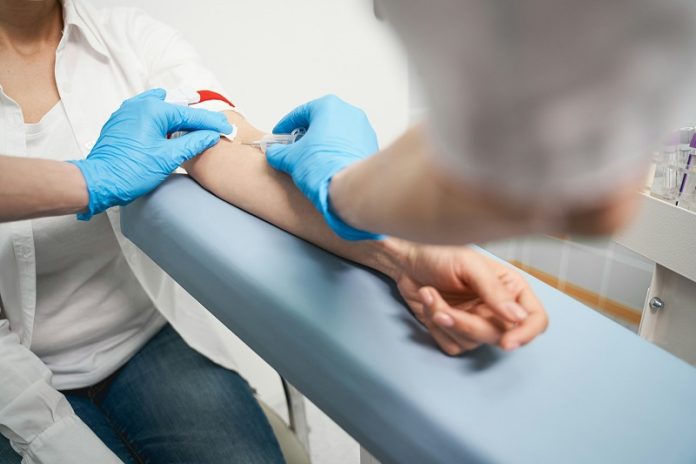
A recent study from Weill Cornell Medicine, NewYork-Presbyterian, Columbia University, and the Icahn School of Medicine at Mount Sinai has found that a simple blood test could help predict how well patients with relapsed multiple myeloma will respond to CAR-T immunotherapy.
This test measures the number of lymphocytes, a type of white blood cell, in the body.
Published in Blood Advances, the research showed that patients whose absolute lymphocyte count (ALC) increased during the first 15 days after CAR-T infusion had a higher chance of a complete response and longer progression-free survival compared to those with lower ALC at day 15.
This information allows doctors to quickly consider alternative treatments if CAR-T therapy is unlikely to work.
Multiple myeloma is a blood cancer that starts in plasma cells in the bone marrow. Almost all patients with multiple myeloma experience a relapse, meaning the cancer returns after initial successful treatment.
CAR-T immunotherapy for relapsed multiple myeloma involves collecting a patient’s own immune cells, genetically modifying them to target and kill cancer cells, and then infusing these modified cells back into the patient.
These CAR-T cells specifically target BCMA, a protein abundant on multiple myeloma cells.
“Although this FDA-approved treatment is widely used, there hasn’t been a way to predict its effectiveness after administration,” said Dr. Mateo Mejia Saldarriaga, lead author of the study and assistant professor of medicine at Weill Cornell Medicine.
“Using ALC as a marker can better guide treatment decisions.”
Dr. Ruben Niesvizky, professor of medicine at Weill Cornell Medicine, and Dr. Mark Bustoros, assistant professor of medicine at Weill Cornell Medicine, are the study’s co-senior authors. They collaborated with colleagues at Columbia Herbert Irving Comprehensive Cancer Center and The Tisch Cancer Institute at the Icahn School of Medicine at Mount Sinai.
The researchers analyzed data from 156 patients who received BCMA-CAR-T therapy between 2017 and 2023. They measured patients’ ALCs five days before treatment and during the first 15 days of therapy.
They found that patients with higher ALC at day 15 had better treatment responses, with their cancer under control for an average of 30 months, compared to just six months for those with lower ALC.
“This multicenter study confirms that high ALC is an independent predictor of disease progression,” Bustoros said. “It shows the potential of using ALC to guide treatment.”
Laboratory studies indicated that higher ALC was associated with CAR-T cells thriving and multiplying in the body, which likely helped keep the cancer in check. Identifying patients likely to respond poorly to BCMA-CAR-T allows doctors to explore other treatments sooner.
“We want to develop strategies to enhance BCMA-CAR-T activity in patients with lower ALC,” Mejia Saldarriaga added. “While CAR-T therapy has been a significant advancement, there is still room for improvement.”
If you care about wellness health, please read studies about nutrients that could combat inflammation in older people, and essential foods for healthy aging.
For more health information, please see recent studies about the link between processed foods and chronic diseases, and a simple diet change for a healthier life after 65.



